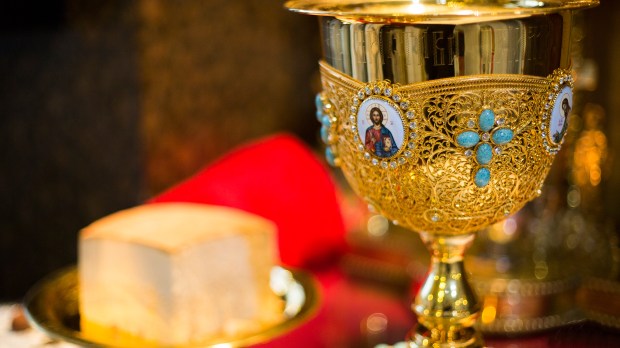You would never, in filling out his c.v. for him, include “gifted writer and editor” and you might not even include “mediocre writer and editor.” And yet there he was snagging really good jobs. I felt baffled until one day, sitting in a pub at the end of a conference, someone who’d hired him said, “We figured he charged so much he must be really good.”
I stared morosely into my beer.
Last Thursday evening, at 6:27, I said a bad word. The day’s final Ascension Day Mass started at 6:30 and I had last noticed the time a little after 6:00 and then went back to work on something I was writing. I had no excuse for losing track of the time and could imagine what my confessor would have said in response to “I missed Mass because I was caught up in the joys of creation.” Fortunately the church near our friend’s home was just around the corner and my wife and I slid into the back pew as the congregation was finishing the Kyrie.
These two stories are related. We are blessed at the moment, being away from home helping a sick friend, to be in a diocese that celebrates holy days of obligation on the proper days rather than transferring them to the following Sunday. Here the holy days of obligation actually obligate. They disrupt your life. They intrude themselves. They cost you something.
They make you watch the clock.
The Church raises the price
The Church offers great treasures that people ought to be lining up to enjoy. They’re not. The marketer would tell the Church to put on a sale. Lower the price of membership to bring new people in and to keep the people who are already in from leaving. Holy days of obligation? Good grief, no. Drop them.
Yet the Church, especially in dioceses like this one, raises the cost of membership by telling everyone they have be in church not only on every single Sunday, which is enough of a bother, but on days they don’t expect to be in church and have other things to do. The Church says it’s going to be a pain.
The marketer who would tell the Church to get rid of requirements like holy days of obligation may be right, at least in the short term, for those inclined to buy Catholicism anyway. You get to go to Mass when you want and not when you don’t want. It’s a great deal. Sales might improve.
For the long term, however, not so much. Because the weird thing is, people assume that if you have something worth buying, you’re going to charge a lot. To put it the other way, if you charge a lot, they assume you’re offering something worth buying. Sales bring in buyers, but so does raising the price. Shrewd scholars, for example, will hire a man of no noticeable talent because he presents himself as a man whose work is worth a lot of money.
Of course, the Church doesn’t pointlessly add requirements. Her rules are not clever sales tricks.
We observe holy days of obligation, for example, because we live by a different calendar in addition to the worldly one. The Calendar helps us get holier. It has its feasts and fasts that don’t map neatly onto Sundays. The Ascension, a crucial moment in Jesus’s life and our redemption, falls forty days after Easter (see Acts 1:3). The Annunciation falls nine months before Christmas. The Assumption falls on August 15th. Good Friday always falls on a Friday.
And the Church Sells Well
But here’s the thing. Even from the pragmatic point of view, holy days of obligation can draw people to the Church as well as keep them away. They’ll think (I’m putting this in the language of those outside the Church): There must be something good here if they expect us to pay such a high price and give someone else such control over our calendars. They’re telling us how to spend our evenings, for heaven sakes.
After all, the megachurch down the road doesn’t require anything. You can show up or not, however you feel. Those Catholics must feel really confident in their product if they’re not trying to compete with the megachurch for my patronage.
And that’s true. We have the Mass. No Catholic, whatever his theological position, ever suggests giving up the Mass just to bring in more people with a new kind of service. Jesus comes to us in the Mass Body, Blood, Soul, and Divinity, in a way he doesn’t come otherwise. You Get To Receive The Son of God Himself.
We’re not giving up Jesus no matter what the marketers say. While we’re at it, we might as well tell them to get to Mass on the Thursday forty days after Easter. It’s good for us, and some outsiders will really like it too.
David Mills, former executive editor of First Things, is a senior editor of The Stream, editorial director for Ethika Politika and columnist for several Catholic publications. His latest book is Discovering Mary. Follow him on Twitter @DavidMillsWrtng.

